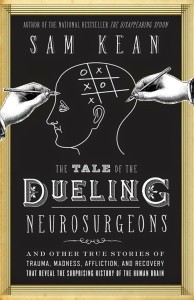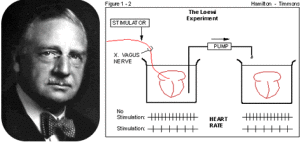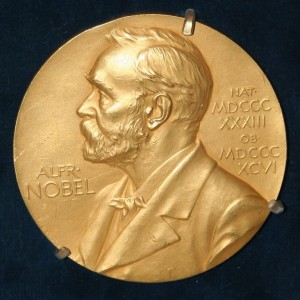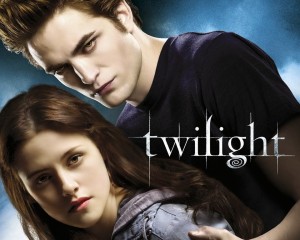By Elaine Viets
Stephenie Meyer said the Twilight saga came to her in a dream. Stephenie slept her way to success when she dreamed about a teenage girl and a vampire who loved her but lusted for her blood.
I dream about my novels, too, but so far none of my dreams have made me an international bestselling author.
The ideas seem so good at three a.m. I wake up, flip on the nightstand light, and scribble them down, then fall back to sleep, certain I have a career-making revelation.
Daylight tells another story. One note I wrote at two a.m. said, “Call California.”
The whole state?

Sometimes I write down chapter openings or endings. In the morning, I can’t read my handwriting.
That’s frustrating. But there is a solution.
I read about Otto Loewi, an Austrian scientist who wrote down a ground-breaking idea – then couldn’t read his handwriting.
Otto is mentioned in “The Tale of the Dueling Neurosurgeons: The Tale of the Human Brain as Revealed by True Stories of Trauma, Madness, and Recovery” by Sam Kean. The nonfiction tale is highly entertaining, but you may not be too Kean on reading the part about brain-eating cannibals at dinner.

Anyway, Otto Loewi was fascinated by experiments with frog hearts in salt water, Kean wrote. “A frog heart removed from the frog and plopped in salt water will beat on its own inside the solution.”
Loewi first heard about the experiments in 1903, but forgot about them until 1920, “albeit under odd circumstances. The night before Easter that year, he nodded off while reading a novel. A Noble-worthy experiment flashed before him in a dream, and he awoke, groggy, and jotted it down.
“The next morning he couldn’t read his handwriting. Annoyed, then desperate, he pored over every jot and tittle. All he could remember was the moment of euphoria, the moment when everything made sense. He retired to bed crushed.
“At three o’clock that night the dream returned. Loewi awoke and, rather than risk another loss in translation, scampered to his lab. There he etherized two frogs.”
Talk about heartless.

Loewi “slipped their cherry-sized hearts into two separate beakers of saline, where they beat and beat and beat and made little waves against the glass. One heart had its nerves still attached, and when Loewi sparked certain nerve fibers, the beat slowed down, as expected.”
Now Loewi’s experiment takes on Frankenstein overtones.
“It was the next step that made him tingle,” Kean said. “He sucked up saline from inside the first heart and squirted it into the other beaker. The second heart slowed down immediately. He then sparked some different nerve fibers on the first heart and sped it up. Another saline transplant made the second heart speed up, too – exactly as he dreamed. 
“Loewi concluded that the nerve, whenever it was sparked, was spurting out some chemical. The chemical then got transferred to the second heart when he transferred the saline.”
This experiment definitely jump-started Loewi’s career. He won a Nobel Prize for Medicine in 1936. 
Keep on dreaming for success – but don’t forget to wake up.


The love of reading is amazing. Sometimes I forget how lucky I am, to love to read.
If you didn’t love to read, Elaine, you wouldn’t have known about such fascinating stuff as frog hearts and nerves. And I hope that sentence didn’t come across as sarcastic. I’m as sincere as I possibly can be.
And people ask us where we get our idea. Pshaw.
And yes, I have done the 3 a.m. doodle. Now I keep my cell phone handy. It has a recorder. Unfortunately my mumbling is just as confusing as my handwriting.
I agree with you about the love of reading, Amanda. It helps maintain my sanity — the little I have left. Your cell phone story is hilarious.
PS: Currently reading and enjoying “The Bookman’s Tale.” Bet you’d like it, too.
A compromise is what Dorothea Brande recommended. Upon waking, get to the page as quickly as possible and just write fast, whatever is bubbling in your brain. It’s that state between sleep and waking. Then, at least, you can read what you put there!
Dorothea is a better writer — in both meanings. I need to get to the computer and try to type. My handwriting isn’t that good when I’m awake, much less half asleep.
“The Bookman’s Tale” has been recorded into my phone and onto my ‘to be read’ list.
Enunciated every word.
I promise you’ll love it. You let me know if you don’t.
A dream is what inspired my first published novel, Circle of Light. It was such an exciting dream, and I remembered most of it, that I had to finish the story.
Even the title sounds like a dream, Nancy. Congratulations for making your dream come true.
What an enlightening post! My problem is that I keep forgetting to put a paper and pen by the bed. I keep thinking I’ll remember. Ha. Slow learner
I remembered the pen and paper, Diana. Now all I have to do is write legibly.
“The whole state?” That cracked me up.
You know, there’s a funny Seinfeld episode about this type of thing. Jerry scribbled something brilliant in the middle of the night but couldn’t understand his own writing.
Good advice to wake up–at least enough to write legibly.